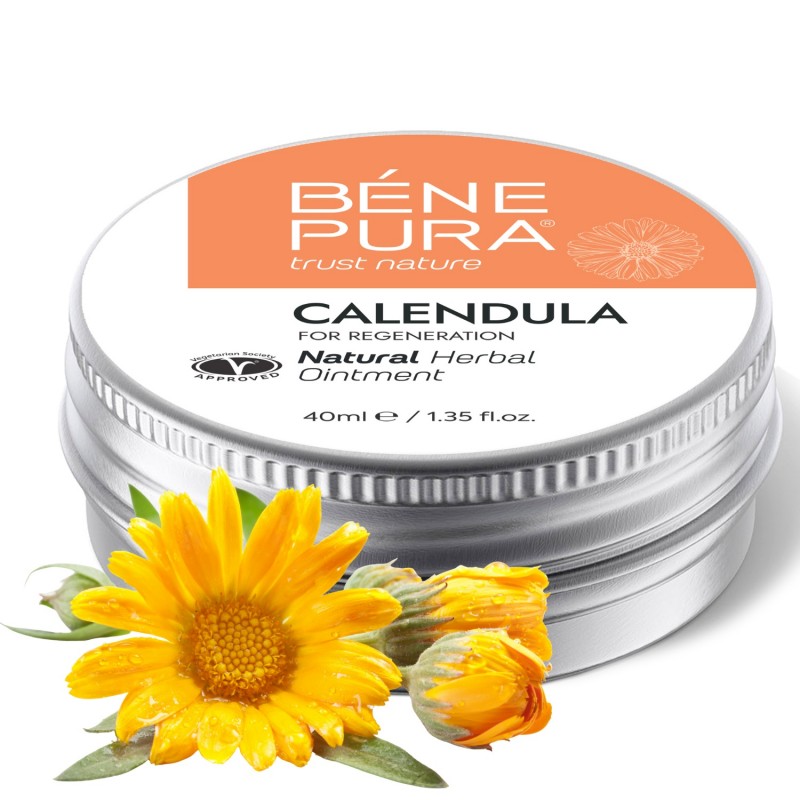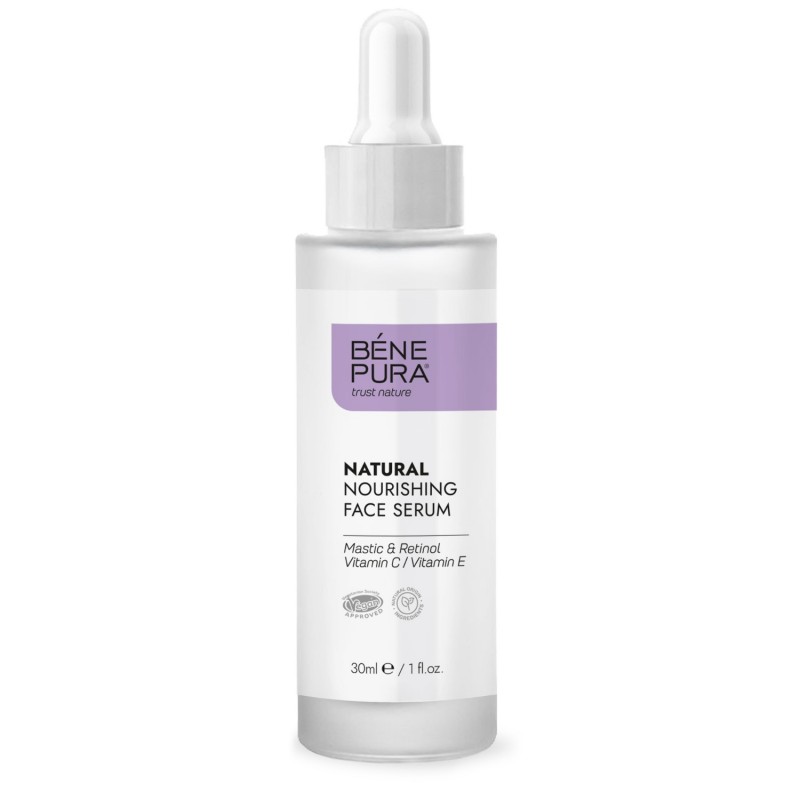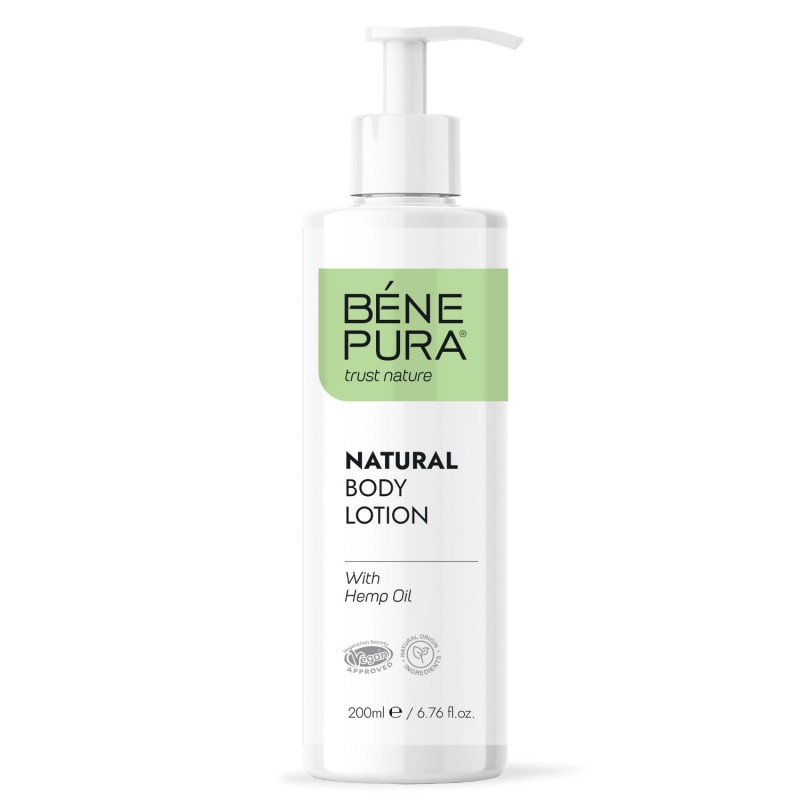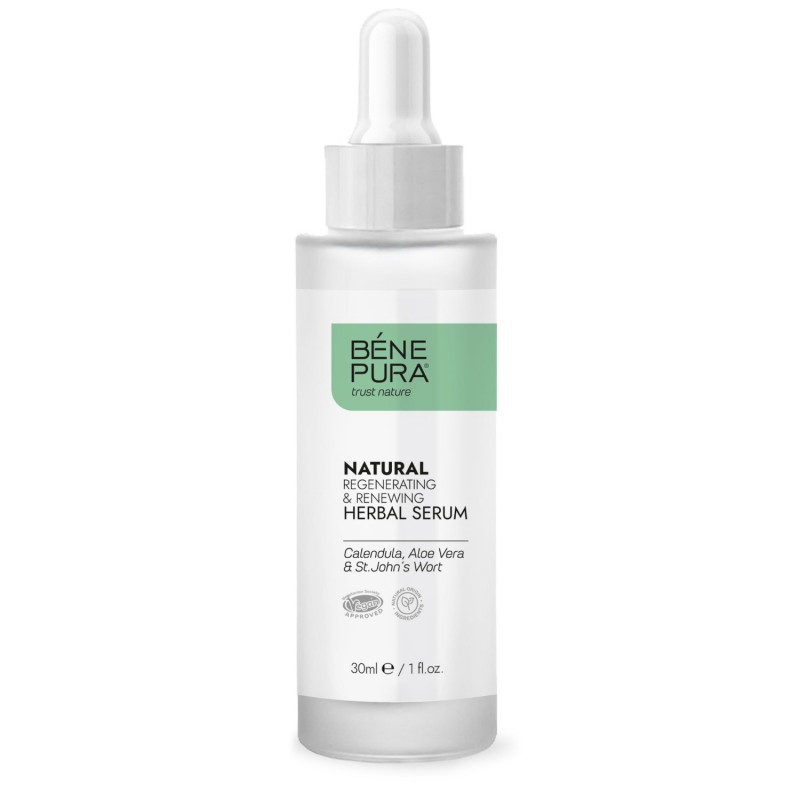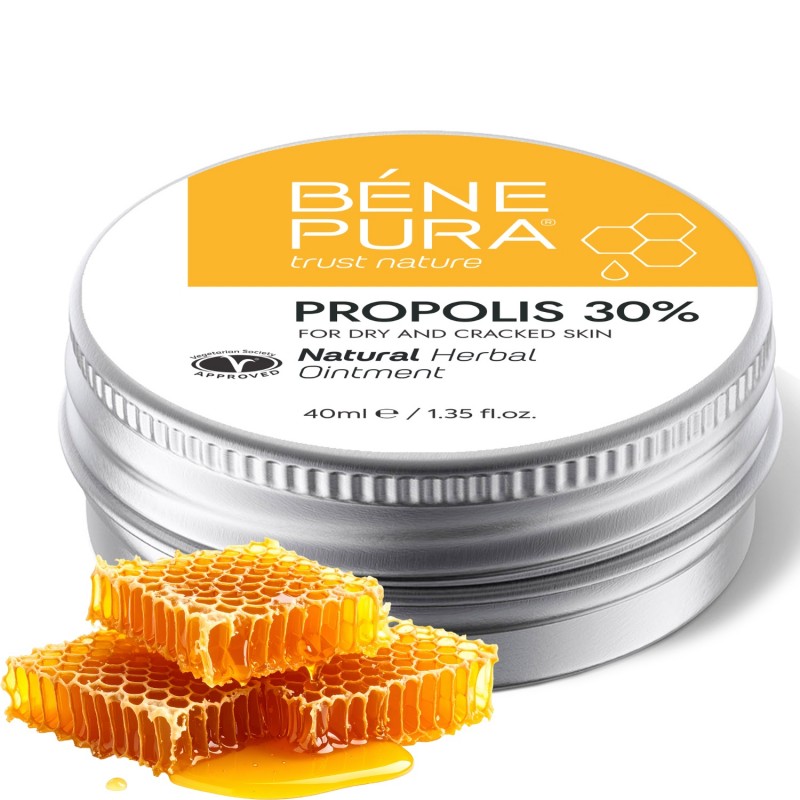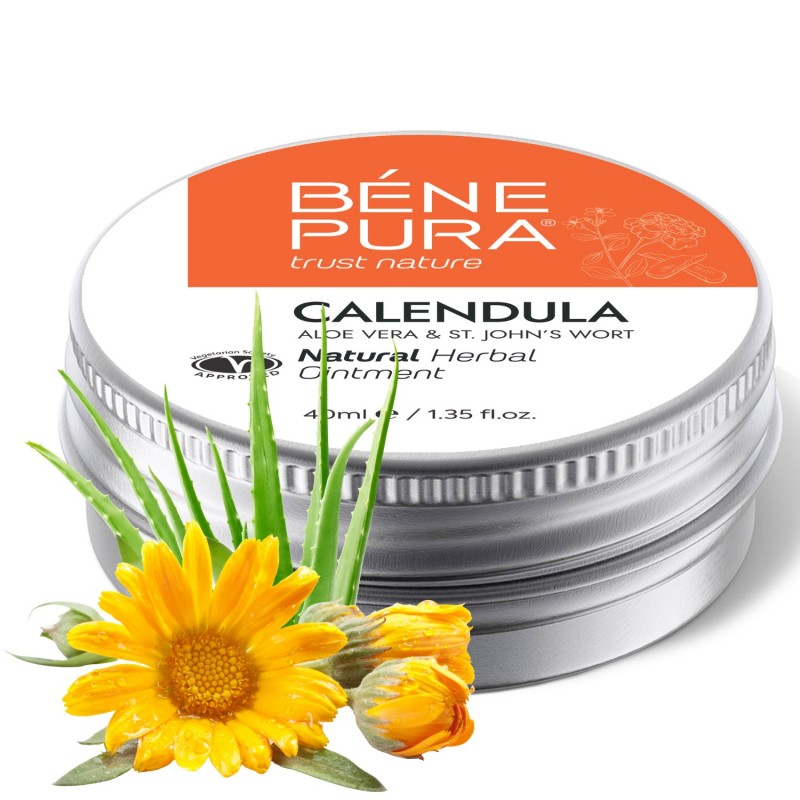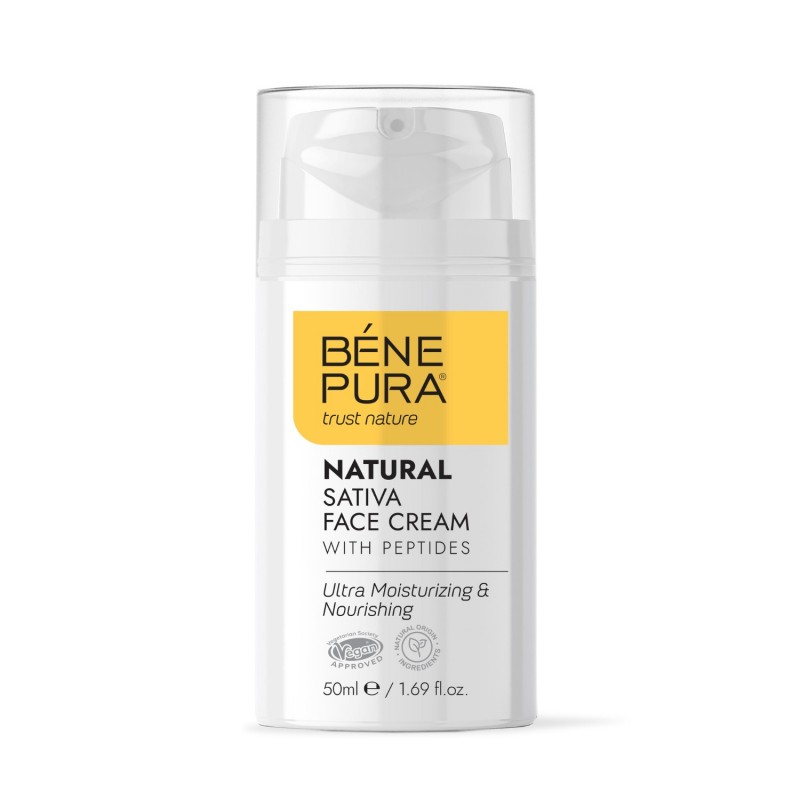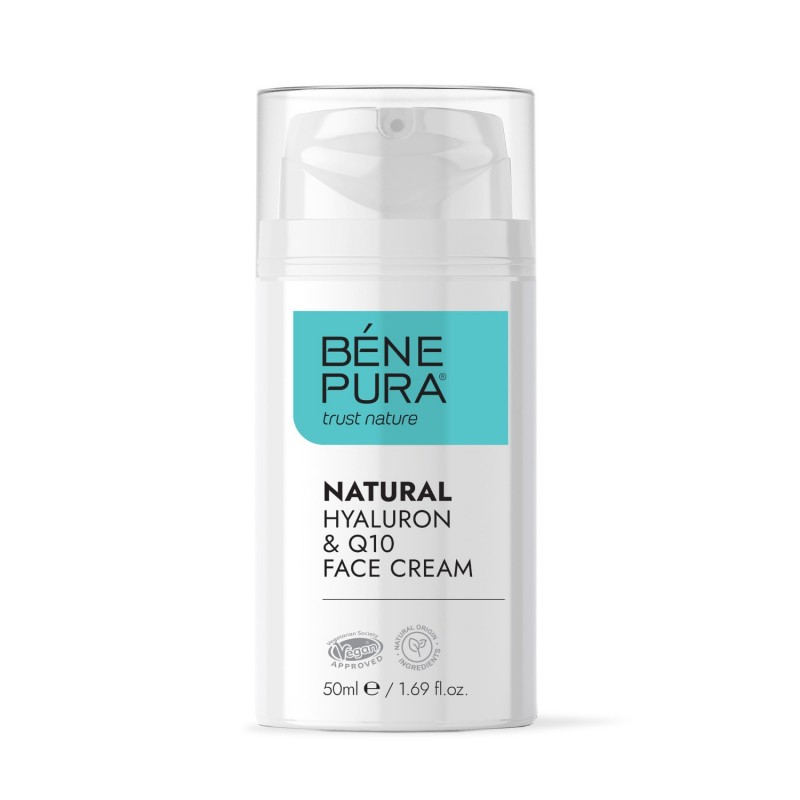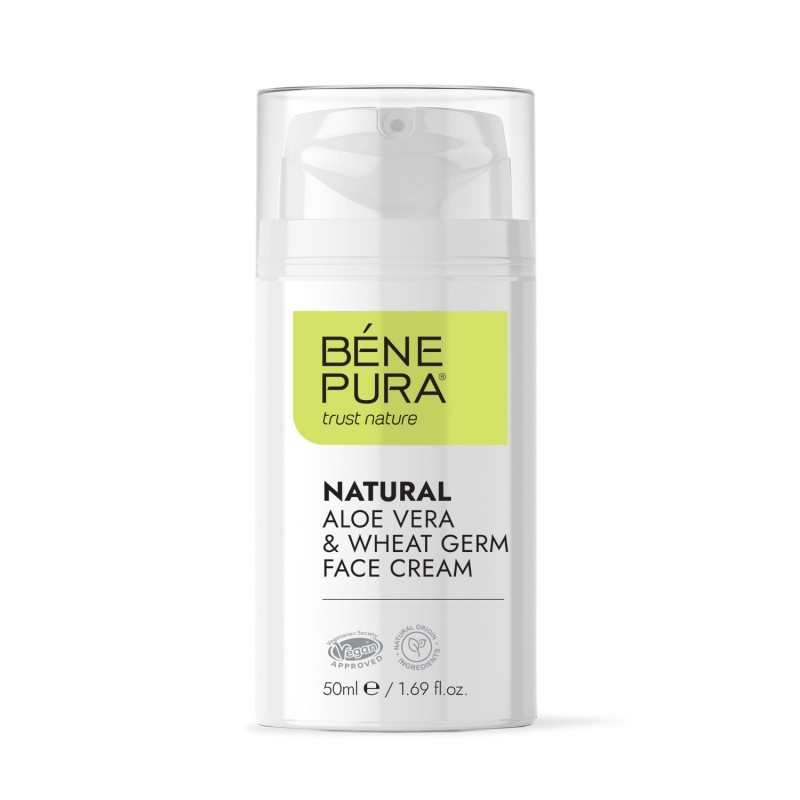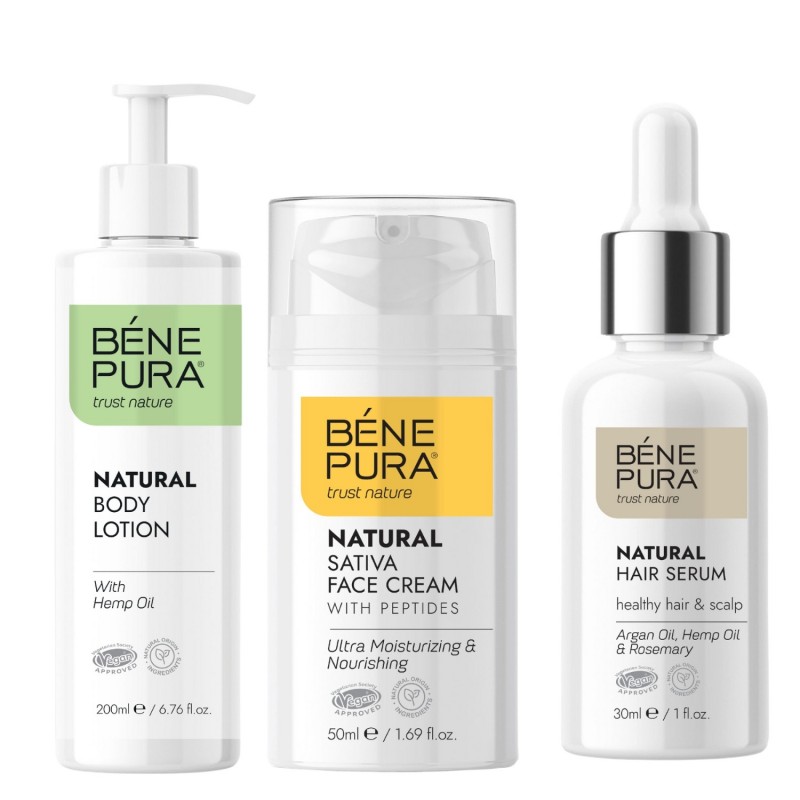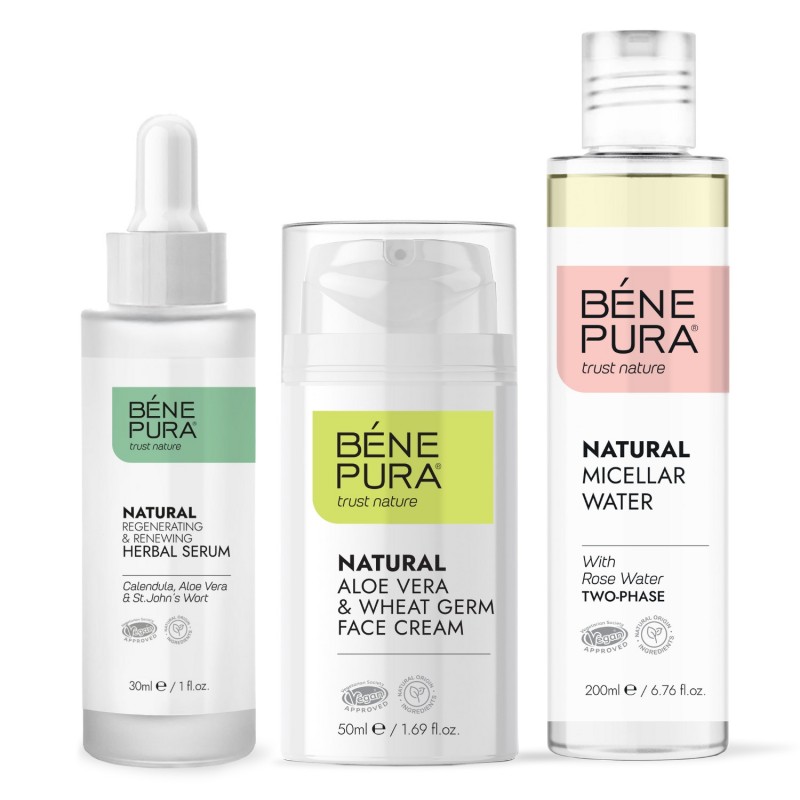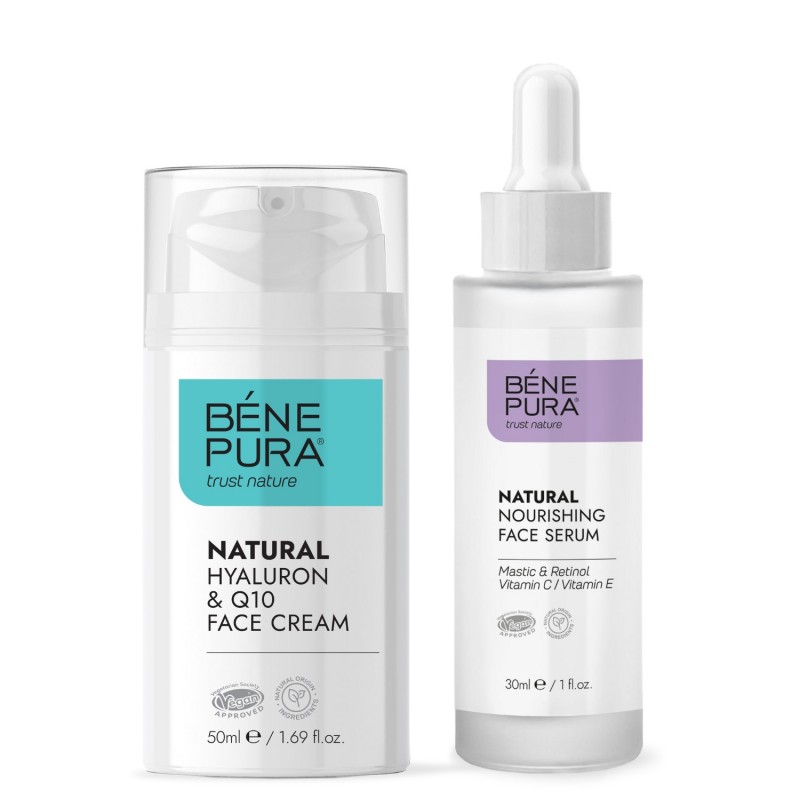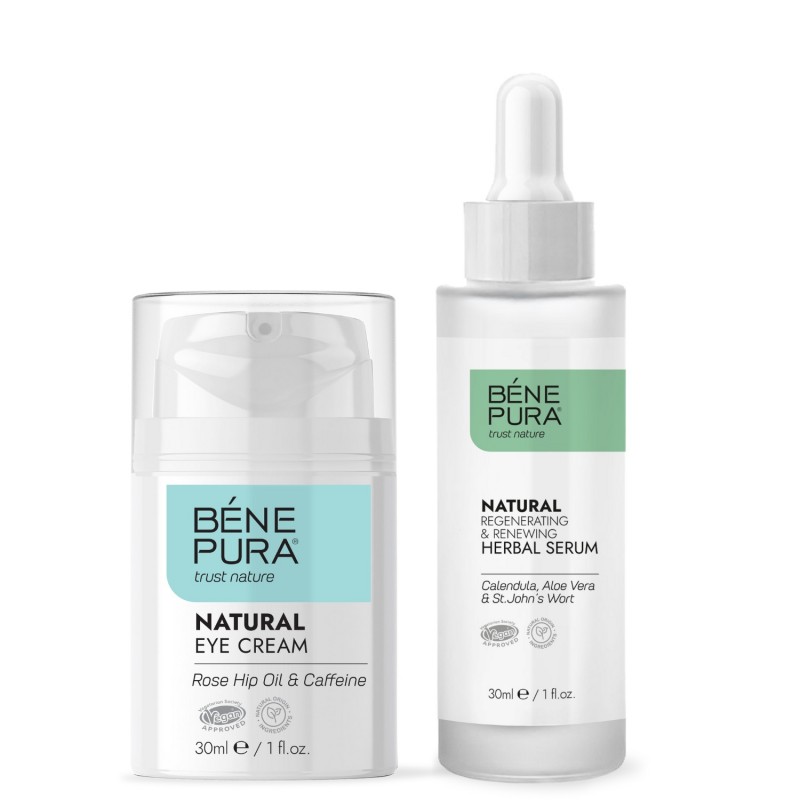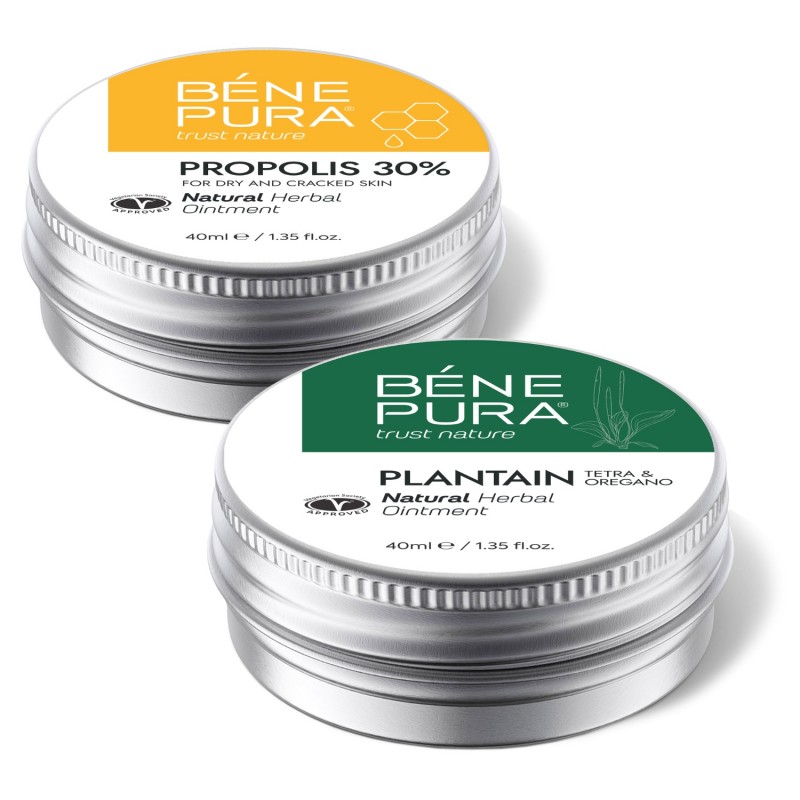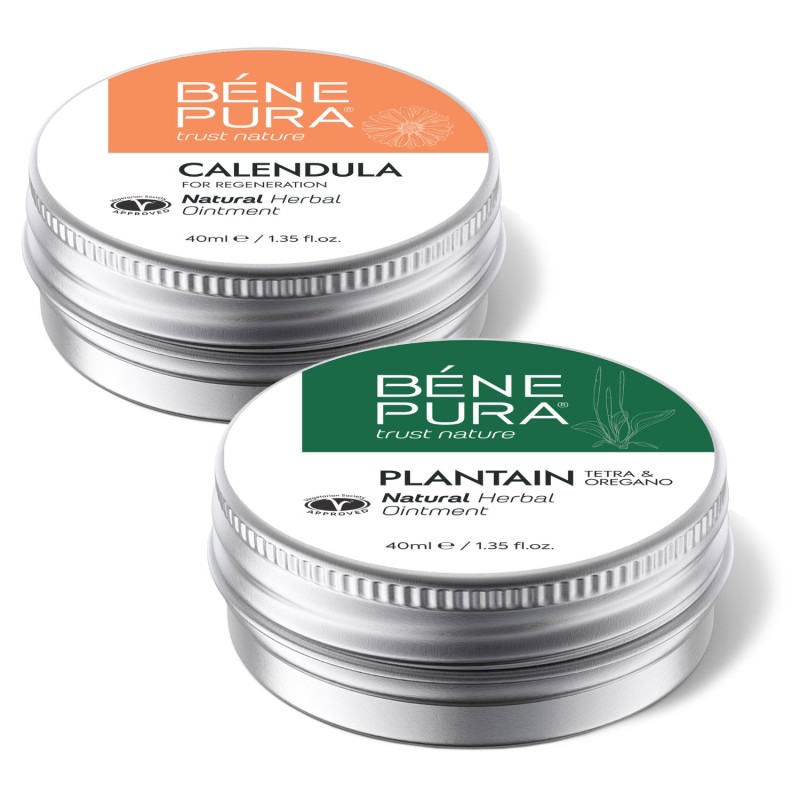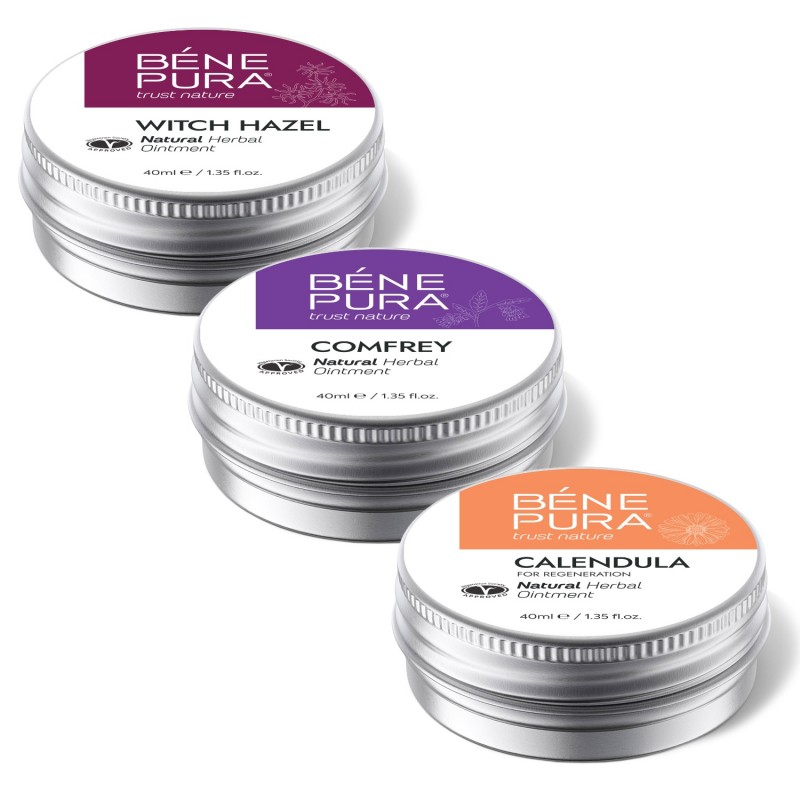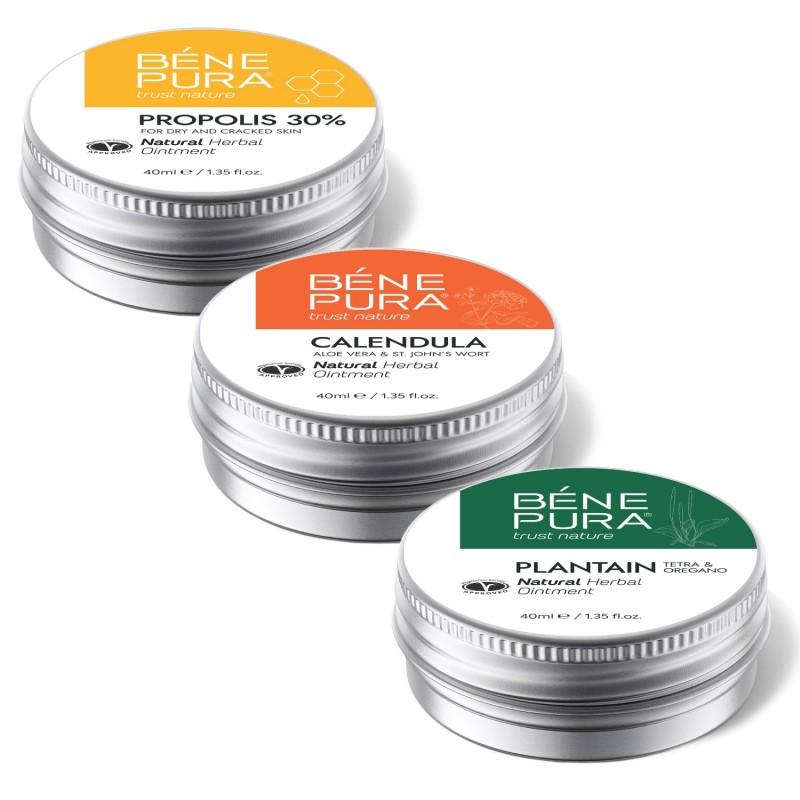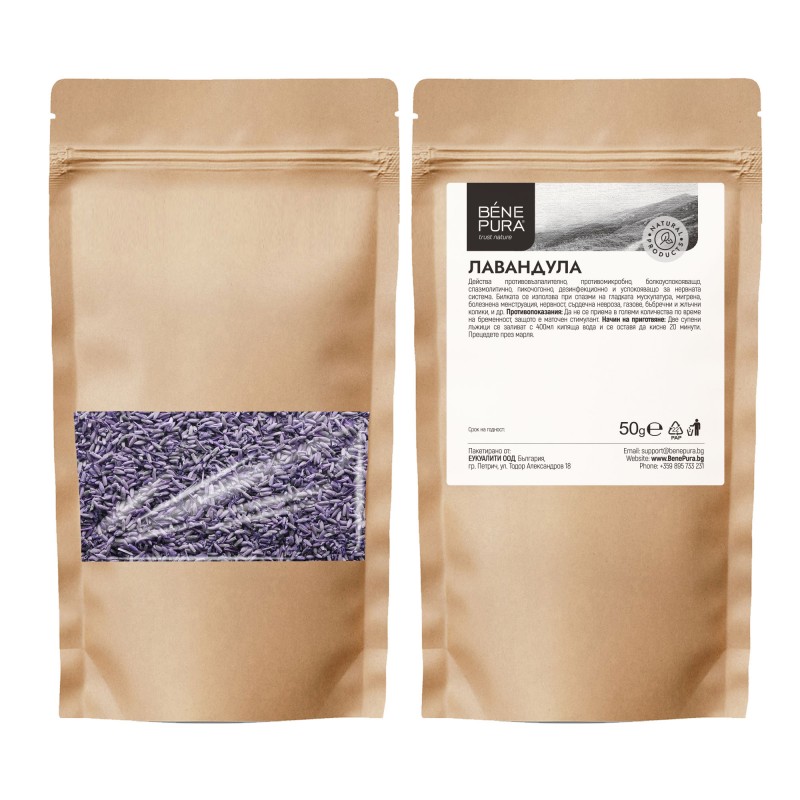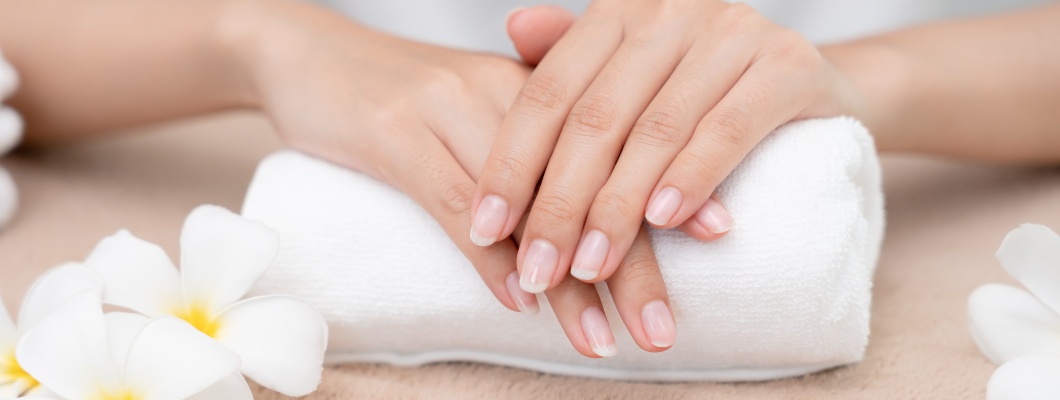Dry, Cracked Skin: What Causes it and How to Treat it
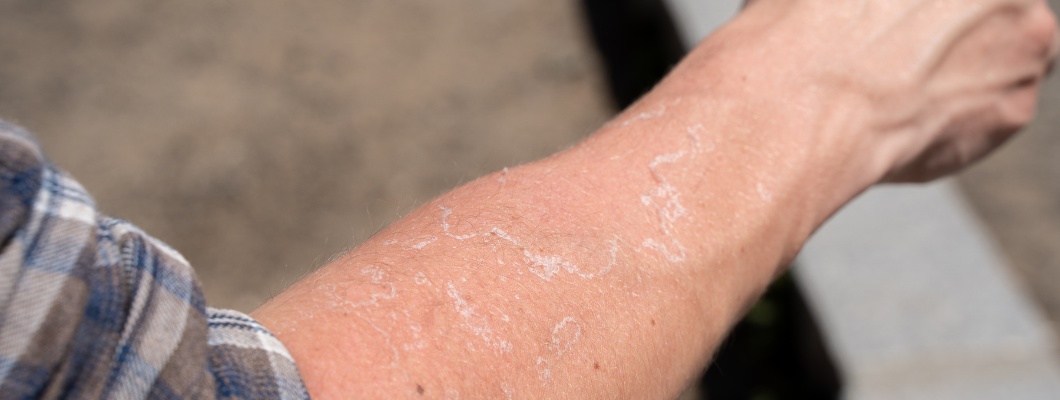
Dry and cracked skin is a problem that many people face, regardless of age or skin type. This condition can be not only uncomfortable, but also painful when the cracks become deep. The skin loses its softness, becomes rough and sensitive and in some cases even predisposes to infections.
In this article, we will look at the causes of dry skin, effective methods for dealing with the problem and preventive measures you can take to enjoy soft and healthy skin all year round.
We will also share homemade recipes as well as suitable products that can help you combat dryness.
Table of Contents
1. What is Dry Skin?
Dry skin is a condition in which the skin loses its ability to retain moisture and repair itself.
This usually leads to visible and tangible changes in the texture of the skin - it becomes rougher to the touch, and its surface may crack. In more severe cases the cracks can deepen and cause bleeding or pain.
Our skin protects us from harmful microorganisms and regulates body temperature. Loss of moisture makes the skin more vulnerable to external influences such as bacteria and allergens.
The most commonly affected areas are:
- The face, where the skin is thinner and more sensitive;
- The hands, which are exposed to frequent washing and contact with chemicals;
- The heels, which bear the weight of the body and are subject to friction.
Dry and cracked skin can develop gradually. At first, you may feel a slight tightness or roughness. If left untreated the condition can worsen, leading to more serious problems.
2. What are The Causes of Dry and Cracked Skin?
1. Insufficient intake of vitamins and minerals
Deficiency of key vitamins and minerals is an often overlooked factor that can lead to dry and cracked skin.
Dry skin can occur as a result of a deficiency of:
- Vitamins: B vitamins (B3, B5, B7), Vitamin A, Vitamin E, Vitamin D;
- Minerals: Zinc, Iron, Magnesium, Omega-3 fatty acids.
2. Health problems
Conditions like Eczema and Psoriasis often cause dryness. Diabetes and Hypothyroidism are also linked to dry skin as they affect the metabolism and circulation.
3. Cold climate
In winter air humidity is usually lower, making it harder for skin to retain moisture. The sudden transition from cold outdoor air to warm, dry indoor air puts additional stress on the skin.
4. Washing too often
Over-washing, especially with hot water, strips away natural oils. These oils play a key role in maintaining the skin's protective barrier. Soaps with harsh cleansing ingredients can also make the condition worse.
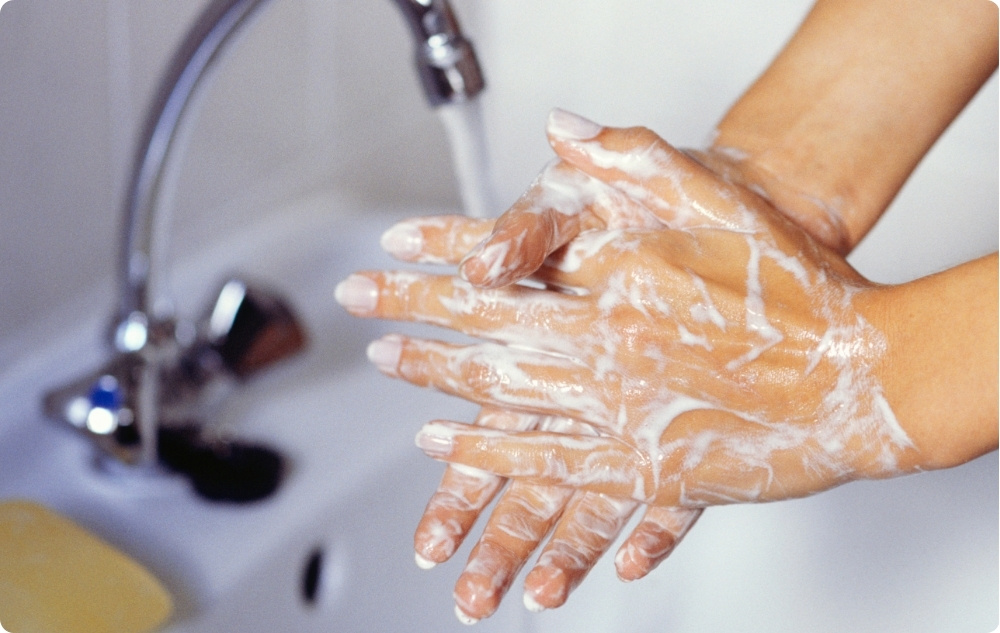
5. Dehydration
Chronic dehydration can reduce skin elasticity and make it more prone to cracking. We often underestimate the importance of internal hydration, focusing only on external creams and lotions.
6. Use of aggressive products
Products with high alcohol content, synthetic fragrances or other irritants can disrupt the skin's natural balance.
As we age our skin produces less natural oils and becomes drier. Hormonal changes, such as those associated with menopause, can also lead to drier skin.
3. How to Deal with Dry, Cracked Skin?
Dealing with dry and cracked skin requires proper care, regular hydration and prevention of factors that worsen the condition.
Use appropriate moisturizing products
Using appropriate moisturizing products is the first step towards restoring dry skin.
1. Look for creams containing:
- Aloe Vera: Provides immediate cooling and hydration while soothing irritations;
- Ceramides: They help restore the skin's natural barrier;
- Panthenol: Improves hydration and soothes irritated skin;
- Hemp oil: Rich in fatty acids, it soothes and deeply hydrates;
- Lanolin: Excellent for retaining moisture in the skin;
- Hyaluronic acid: Retains moisture in the skin;
- Urea: Helps exfoliate and hydrate;
- Natural oils: Nourish and soften the skin.
2. Hydrating serums
Hydrating serums are lightweight products with a high concentration of active ingredients that provide deep hydration. They are especially suitable for the face and neck. Look for serums with Hyaluronic Acid, Glycerin or Niacinamide for maximum effect.
3. Body lotions
Body lotions are lightweight, easily absorbed products that hydrate the skin all over the body. They usually contain moisturizing and soothing ingredients like Wheat Germ Oil and Hemp Oil.
Avoid hot water
Hot water can be tempting, especially during the colder months, but it can dry out your skin. Instead:
- Take short, cool showers;
- Use gentle, sulfate-free cleansers;
- After showering, pat your skin dry instead of rubbing.
Wear appropriate clothing
Protecting your skin from external factors like cold and wind is an important part of prevention. Wear:
- Gloves when working with water or chemicals;
- Scarves and hats to protect your face and neck in winter;
- Shoes with good ventilation to avoid excessive friction on your heels.
Drink enough water

Hydration from the inside is just as important as external care. In addition to drinking water regularly:
- Eat foods that contain water such as cucumbers, watermelon and oranges;
- Add omega-3 fatty acids to your diet which support skin health.
Get adequate rest
Lack of sleep can slow down skin repair processes. Aim for at least 7-8 hours of sleep per night to give your body time to regenerate.
4. Homemade Eecipes for Dry and Cracked Skin
If you prefer natural solutions try the following homemade recipes. They are easy to make and require few ingredients.
1. Homemade ointment with Propolis
Required ingredients:
- 1 tablespoon Propolis tincture (10%);
- 2 tablespoons Coconut oil;
- 1 tablespoon beeswax;
- 1 teaspoon Shea butter (optional);
- 5 drops Lavender essential oil (optional).
How to make it:
- Melt the beeswax and Coconut oil in a water bath until a smooth mixture is obtained (add the Shea butter to the melted mixture and stir);
- Remove the container from the water bath and let the mixture cool for 2-3 minutes;
- Add the Propolis tincture and Lavender essential oil. Stir well;
- Pour the mixture into a clean glass jar or metal box;
- Let it harden at room temperature or in the refrigerator for faster results;
- Apply the ointment to dry, irritated or cracked areas of the skin;
- Use twice a day or as needed to soothe and moisturize.
2. Homemade ointment with Calendula
Required ingredients:
- 1 cup dried Calendula flowers (or 2 tablespoons Calendula oil);
- 1 cup Coconut oil or Olive oil;
- 1 tablespoon beeswax;
- 5 drops Lavender essential oil (optional).
How to make it:
- Melt the beeswax in a water bath at low temperature;
- Add the oil to the melted wax and stir until a homogeneous mixture is obtained;
- If desired, add Lavender essential oil for an additional soothing effect;
- Pour the finished mixture into a clean glass jar and let it cool and harden;
- Apply the ointment to dry, cracked or irritated skin;
- It is suitable for use on hands, heels, lips or any area in need of hydration and soothing.
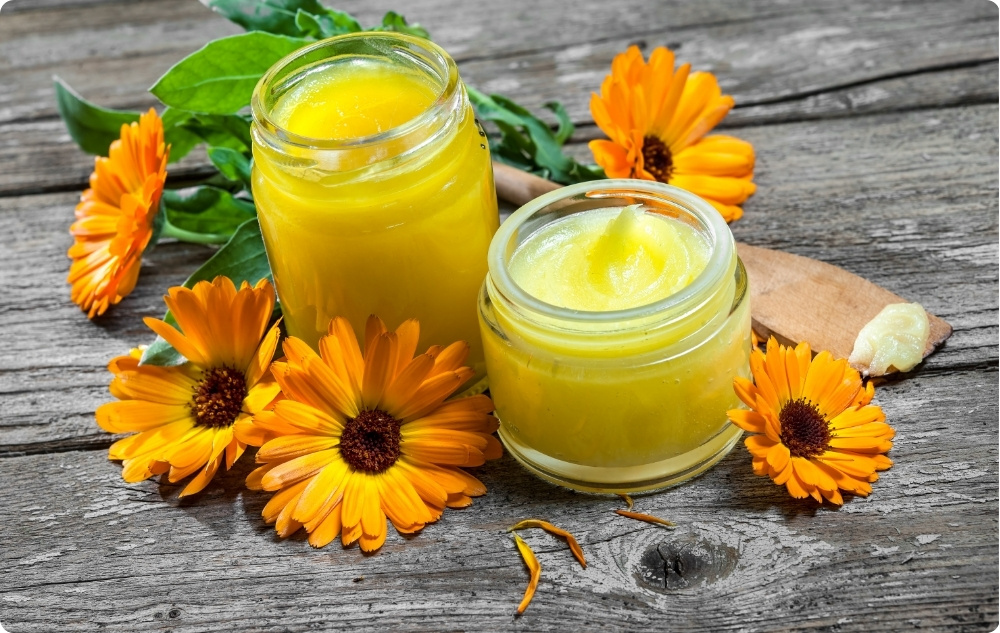
3. Mask with Honey and Olive Oil
Required products:
- 1 tablespoon Honey;
- 1 tablespoon Olive oil.
How to make it:
- Mix the Honey and Olive oil in a small bowl until smooth;
- Apply to dry areas of the skin and leave on for 20 minutes;
- Rinse with warm water and pat dry.
4. Moisturizing cream with Coconut oil
Required products:
- 2 tablespoons Coconut oil;
- 1 teaspoon Vitamin E oil (optional).
How to make it:
- Melt the Coconut oil in a water bath and add Vitamin E oil;
- Mix well and let cool;
- Apply to the skin before going to bed.
5. Oatmeal Exfoliant
Required products:
- 2 tablespoons finely ground Oatmeal;
- 1 tablespoon Yogurt;
- 1 teaspoon Honey.
How to make it:
- Mix all the ingredients to make a paste;
- Apply to the skin with light, circular movements to remove dead skin cells;
- Rinse with warm water and apply moisturizer.
5. How to Prevent the Skin from Drying Out and Cracking?
Adjust the temperature in your home
Too high or low temperatures can dry out the skin. Use a humidifier to maintain optimal humidity in your home especially in winter.
Avoid prolonged washing
Swimming in chlorinated pools or taking long showers can dry out your skin. Try to limit your time in the water.
Use natural fabrics
Cotton or linen clothes are gentler and allow the skin to breathe. Avoid synthetic fabrics which can irritate the skin.
Follow a balanced diet
To prevent dryness and cracking it is important to provide your body with the necessary nutrients:
- Foods rich in essential fatty acids: salmon, mackerel, tuna, flaxseed, walnuts;
- Foods rich in vitamins: carrots, red peppers, almonds, dairy products;
- Foods rich in minerals: seafood, avocado, legumes.
Schedule regular dermatological checkups
If you notice that dry skin is getting worse or is accompanied by other symptoms, consult a specialist.
Apply lip balm and hand cream
These areas are often neglected but are extremely susceptible to dryness. Choose products with protective ingredients like Beeswax or Shea Butter.
6. Conclusion
Dry and cracked skin can be a challenge, but with the right approach and regular care you can keep it healthy, soft and supple.
Don't underestimate the importance of daily habits, hydration and protecting your skin from external influences. By applying the recommendations and recipes shared here you will achieve not only a better appearance, but also better self-confidence.
SOURCES:
1. Healthline: What Causes Dry Skin and How to Treat It (07.02.2025)

